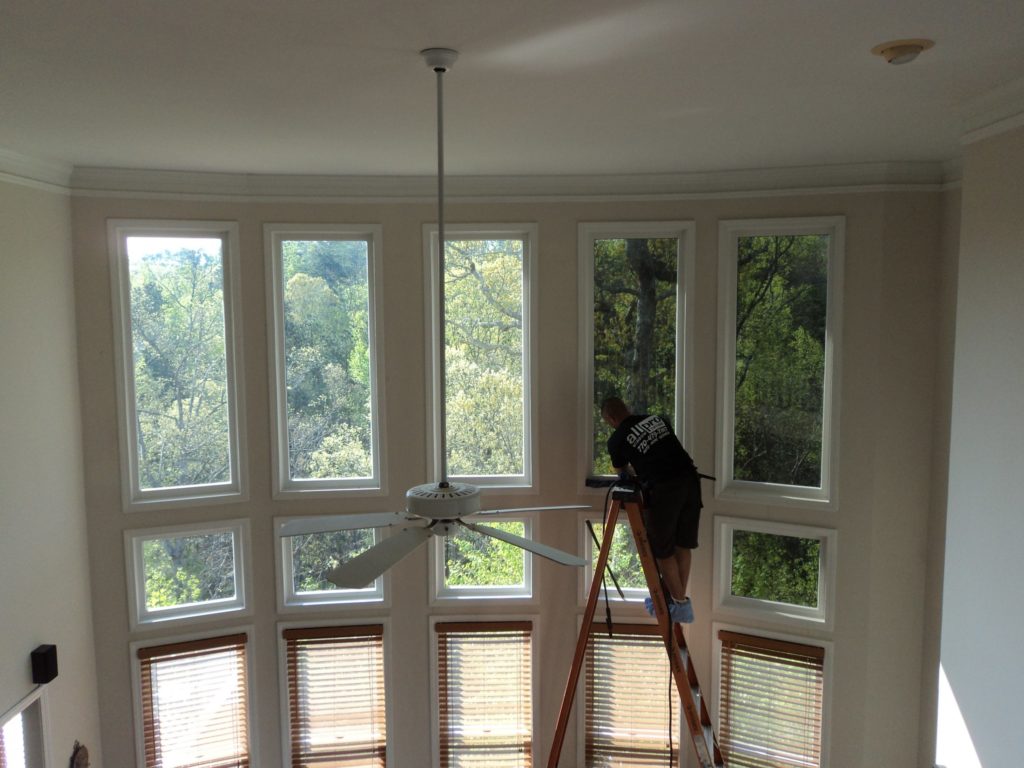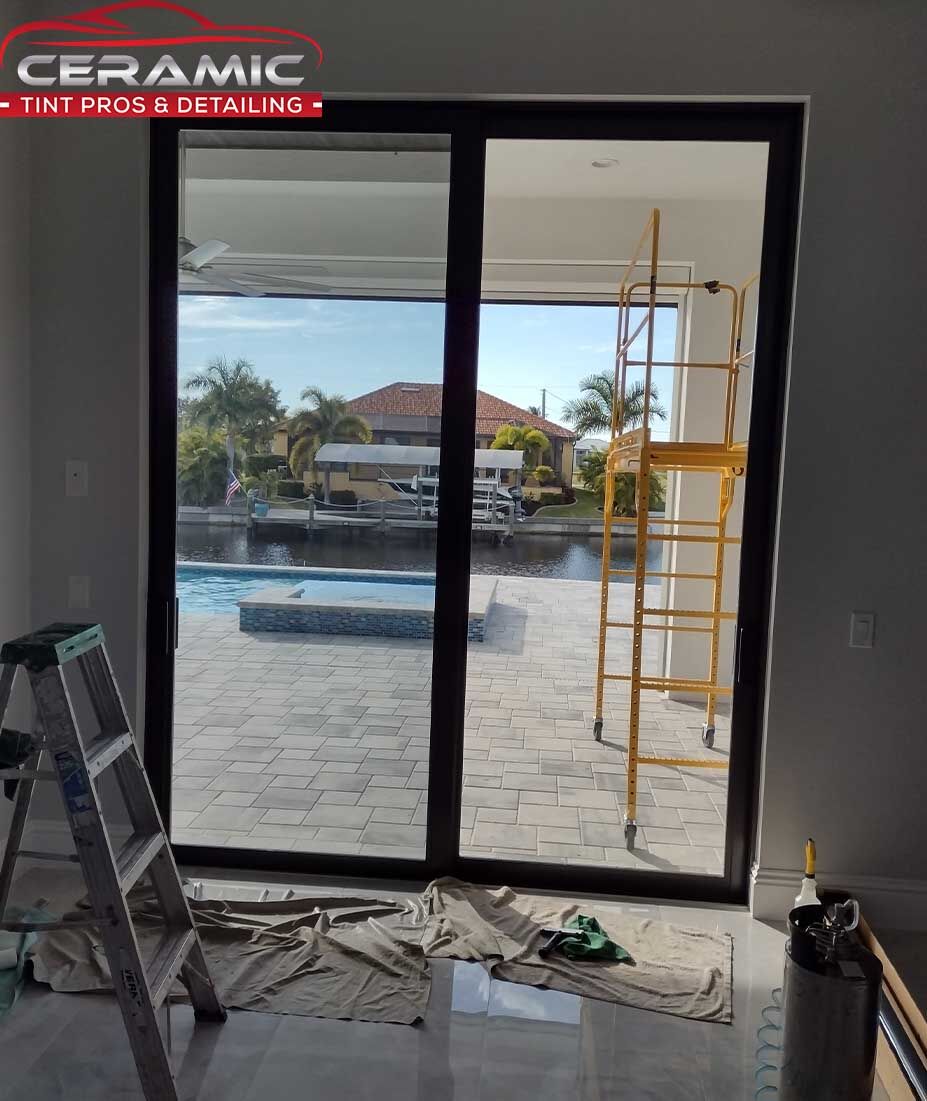Why Residential Window Tint is a Smart Investment for Homeowners
Why Residential Window Tint is a Smart Investment for Homeowners
Blog Article
Exactly How Residential Home Window Tinting Enhances Your Home's Power Effectiveness
Residential home window tinting presents a compelling service for home owners seeking to improve power efficiency within their living spaces. By applying specialized films to windows, it successfully lowers heat transfer, thereby supporting indoor temperature levels and minimizing the need for extreme heating or cooling.
Comprehending Home Window Tinting
Understanding window tinting is important for homeowners seeking to boost both convenience and power efficiency in their living rooms. Residential Window Tint. Window tinting involves the application of a slim movie to the inside or exterior surface area of glass home windows. This film can substantially regulate the amount of sunshine and warm that goes into a home, therefore influencing indoor environment problems
There are numerous kinds of window tinting movies available, each with distinctive buildings. The efficiency of window tinting is usually determined by its Visible Light Transmission (VLT) percent, which suggests how much light can pass with the film.
Benefits of Power Efficiency
Home window tinting not only improves aesthetic appeals but additionally plays a significant role in improving power efficiency within household areas. By minimizing warmth transfer with windows, colored films develop a more secure indoor climate, which can bring about considerable decreases in energy usage for heating & cooling. This energy performance translates into reduced energy bills, supplying homeowners with considerable lasting savings.

In addition, home window tinting enhances the convenience of living areas. By reducing glow and obstructing damaging UV rays, tinted home windows create an even more pleasurable environment, which can bring about enhanced well-being for owners. The security versus UV rays likewise helps protect furniture and floor covering from fading, contributing to the long life of family items.
Exactly How Tinting Works
Tinting movies operate via a combination of innovative materials and technologies made to manage the quantity of solar power entering a home. Mostly composed of polyester, these films commonly incorporate ceramic or metal bits that reflect and soak up warm. This twin ability permits them to considerably lower the penetration of ultraviolet (UV) rays and infrared radiation while allowing visible light to go through.
The performance of window tinting is determined by its solar warmth gain coefficient (SHGC), which indicates just how much solar power is transmitted with the home window. Reduced SHGC worths are more effective as they represent greater heat being rejected. In addition, home window tints can feature a range of tones, permitting property owners to personalize their visual choices while enhancing energy effectiveness.
In addition, these movies act as a barrier, protecting against warmth loss during colder months by showing indoor heat back have a peek at these guys right into the living space. This thermal insulation impact matches the air conditioning advantages gained during warmer months, adding to a balanced interior environment year-round. By taking care of solar energy successfully, property home window tinting not just boosts comfort but likewise plays an essential role in minimizing power intake and decreasing energy costs.
Picking the Right Color

There are numerous types of window movies available, including colored, metalized, and ceramic. Colored films are economical yet may have limited durability. Metalized films supply better warm denial but can disrupt electronic signals. Ceramic movies give outstanding warm control without endangering visibility and are extremely durable, making them a popular selection.
Visible light transmission (VLT) is another critical variable, as it indicates the amount of natural light that can go through the tinted glass. Property owners must pick a color with a VLT that matches their illumination choices while read what he said still supplying appropriate glow decrease.
Furthermore, examining the solar warm gain coefficient (SHGC) can assist figure out just how well a color can obstruct warmth from sunshine. A reduced SHGC indicates better warmth control, inevitably enhancing energy effectiveness.
Setup and Maintenance Tips
Appropriate installment and maintenance are essential parts in maximizing the advantages of residential window tinting. Specialists also make use of specialized tools and methods, which can boost the resilience and performance of the tint.
Complying with installation, maintenance is necessary to prolong the life of the home window movie. It is suggested to wait at the very least 30 days prior to cleansing the tinted windows to enable the glue to treat completely.
Attending to these problems quickly can avoid further damage and keep power effectiveness. By adhering to these installment and upkeep ideas, house owners can ensure their home window tinting proceeds to offer significant power financial savings and comfort for years to come.
Verdict
In final thought, property window tinting offers as an effective option for improving energy performance within homes. By lowering warm transfer and blocking damaging UV rays, window films contribute go to this site to decrease energy consumption and boosted indoor comfort.
Window tinting entails the application of a slim film to the interior or outside surface of glass home windows. By reducing warm transfer with home windows, tinted films produce a much more steady interior environment, which can lead to significant reductions in power intake for heating and cooling.The efficiency of window tinting is determined by its solar warmth gain coefficient (SHGC), which shows how much solar energy is transferred with the home window. By taking care of solar power efficiently, property home window tinting not just boosts convenience yet additionally plays a vital role in decreasing energy usage and reducing utility expenses.
By minimizing warm transfer and obstructing dangerous UV rays, home window movies add to decrease power intake and boosted interior convenience.
Report this page